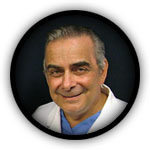I am sure you guys see a lot of patients, and I just read an article on CNN about a site that lets doctors complain about pushy patients. Do you have any horror stories about patients that gave you a hard time? Here’s the article: Are you giving your doctor a headache?
From my regular reading of this blog I can tell there are plenty of people out there that fancy themselves as “experts” when it comes to hair loss and love to show off their armchair medical degrees that they earned by surfing the web for a few hours. Its great to try to learn as much as possible about various problems one might have, but at what point does it become a headache for you when the person insists a medication is causing their issue or insists that their hours of research are more accurate than your many years of treating patients in person?
Thanks and keep up the great work!!!
 People are people and they come in all personality traits. As a doctor, you expect to see a wide variation of patient personalities, and if you didn’t, you should not be a doctor. I demand that doctors treat every patient with dignity and respect. If a patient does not behave properly or is disruptive to the goals of a first consultation, I use my people skills to try to end the interaction with a frank discussion that maybe we (doctor and patient) are not compatible. This has been very rare for me to find such a patient.
People are people and they come in all personality traits. As a doctor, you expect to see a wide variation of patient personalities, and if you didn’t, you should not be a doctor. I demand that doctors treat every patient with dignity and respect. If a patient does not behave properly or is disruptive to the goals of a first consultation, I use my people skills to try to end the interaction with a frank discussion that maybe we (doctor and patient) are not compatible. This has been very rare for me to find such a patient.
What usually happens is that if there is a patient who is upset about their hair loss circumstances, or afraid of an uncertain future, or were treated with less than proper respect, or achieved less than the results than they expected from a surgery with another doctor, then my job is the communicate with them. Many times what is thought to be a difficult patient, actually turns out to be a patient who is just afraid and if I take the time to listen to them, I almost always calm them down.
I believe that all people deserve the best efforts I can manage and I approach everyone that way. Sometimes I look back upon the interactions with patients and laugh to myself at the happenings. I remember one patient, for example, who had a hair transplant with me and the next day came in with a poster sized blow-up of his transplanted scalp with individual pins placed into every graft in the head that he could see. He claimed that I cheated him and overcharged him for the number of grafts that were given to him the day before. I sat down calmly with him, showed him grafts that he did not see (no pins in the picture) and suggested that he come in another day so I can show him a live surgery and demonstrate why the picture did not really show the actual hair graft count. He did just that and everything was fine after. Especially difficult patients produce difficult challenges and it is the doctor’s job to address the needs of the patient, always.

 How do you really expect me to answer this question? If there is a conspiracy, how would I know this? But really, the question I must ask — Why would there even be a conspiracy? Why would corporations intentionally delay the cloning? What is the motive? Sometimes I can’t tell if someone is joking around or if they truly believe something as nutty as this.
How do you really expect me to answer this question? If there is a conspiracy, how would I know this? But really, the question I must ask — Why would there even be a conspiracy? Why would corporations intentionally delay the cloning? What is the motive? Sometimes I can’t tell if someone is joking around or if they truly believe something as nutty as this. I’m sure you’ve heard the saying, “Bald is beautiful“. With respect to Prince William, I am sure if he is bothered by his hair he would have done something for it. He looks like an excellent candidate to take finasteride and see what happens with the medication alone. One reader commented that they didn’t like Prince William’s thinning hair and wondered if he would be a candidate for hair transplant surgery. Yes, he’d likely be good candidate if that is what he wanted to do about it.
I’m sure you’ve heard the saying, “Bald is beautiful“. With respect to Prince William, I am sure if he is bothered by his hair he would have done something for it. He looks like an excellent candidate to take finasteride and see what happens with the medication alone. One reader commented that they didn’t like Prince William’s thinning hair and wondered if he would be a candidate for hair transplant surgery. Yes, he’d likely be good candidate if that is what he wanted to do about it.